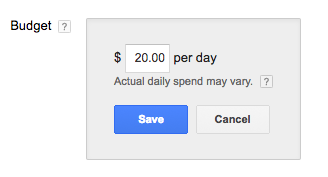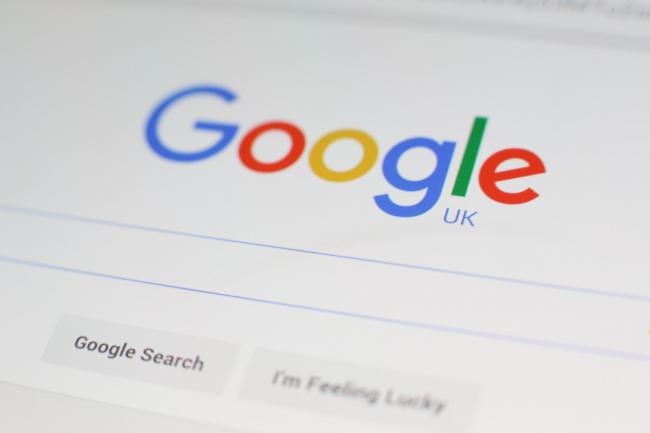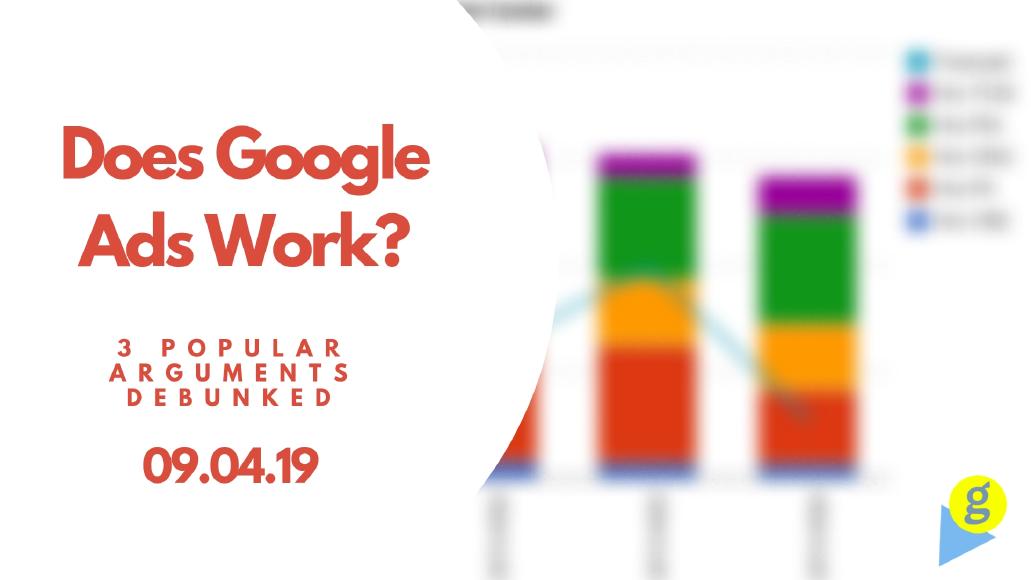We love Google Ads. We love its simplicity, complexity and the timeliness of its’ results. From launching your first campaign correctly, you can start to see results within seconds. There are not many other channels where the results are this instantaneous, outside of social or sales campaigns (cold calling, email advertising) so it represents a tremendous opportunity for small and large businesses.
You may think we’re a little bit biased, after all we do work for a leading agency which specialises in managing PPC campaigns, but the reason why we work here is because we love PPC and truly believe it the best marketing solution currently available.
In our working week, we see so much feedback from new clients talking negatively about Google Ads. “We’ve tried Google Ads but it didn’t give us anything” or “We spent a fortune on internet Ads and we got site visits but no sales” are both common criticisms that reach us, frequently.
Crucially, the Google Ads platform hosts hundreds of features and capabilities which can be used to launch performant marketing campaigns. It’s easy to get lost the sea of buttons, sliders, filters and settings when you’re new so it’s not surprising that business owners who have little time when they’re not running their enterprise, execute campaigns that don’t work performantly.
Now, we don’t want to get into an argument over IF paid search marketing works or not because that could become demoralising. Instead, let’s all accept that search marketing does work and rather focus our efforts on the reasons WHY.
We’re in prime position to receive feedback on all things marketing – after all, we’re the leading marketing agency in Cambridge, so let’s breakout the most common arguments we hear about Google Ads and provide some counter arguments to show you why it works and how.

Argument 1
Google Ads is too expensive for my small business.
Let’s get this out in the open – Google Ads costs money. You’ll have to spend your profits on advertising your business if you want it to grow. Often, when small businesses start out they might not allocate their marketing budget in the right place or on the right channels.
It’s crucial that a marketing campaign has enough resources to work – sometimes small businesses who are in the midst of launching their first campaign will apply a tiny budget and won’t wait for it to show a return on investment (ROI) before scrapping it.
It’s important to remember that all campaigns have a Return on Investment (ROI) and that this can be either negative or positive. In order to discover the ROI of your campaign, you’ll want to (at a minimum) measure the number of clicks your advert experiences and compare this with the number of leads it generates. Now, if you have access to these numbers you’ll be able to define if your campaign is a success or not and importantly, if it’s worth running.
Smaller budgets, take longer to show a return. It’s the nature of the game – if you’re running a campaign of £150 per month on Google Ads, then it’s going to take longer to see results come through when compared with a budget of £1,500. Think of it this way – with a budget of £150, we’re looking at a daily click budget of £4.80 in comparison to £48 per day. If a click costs £1 then on a smaller budget, you’ve only got a maximum of 4 clicks before you hit budget. Let’s say you need 100 clicks to give yourself some meaningful statistics back which means you’ll have to wait 400 days before you can decide if it was worth running (with £48 per day, you only need 2 days).
If you’ve got a small budget, here are a few tips to make your ads less expensive and potentially more profitable.
• Control spend with budget & bidding strategies
Deciding which budget or bid you apply to keywords, ad groups or campaigns could almost take up all your week. In the spirit of ‘keeping things simple’, the best way to approach this is to just write down how much you can realistically spend for each campaign and set your daily budget accordingly. For the budget cautious advertiser, big manually. Using manual bids keeps you in the driving seat in terms of how much you’re willing to bid on a single click. As your account grows, it can help to start to involve Google Ads AI but when you start manual CPC bids works great.

• Spend time to learn how to use Google Ads
It can be overwhelming when learning a new software but it’s only by spending time to learn how it works and how to interface with it, do you start getting solid results. There are all sorts of reasons why small businesses are running unsuccessful Google Ad campaigns but one of the most common, is that the operators don’t learn what the system is capable of and how best to run campaigns. There are plenty of ways to top up your knowledge by either visiting Google Academy, reviewing some of our guides, watching YouTube webinars etc. Get a feel for account structure, match types, negative keywords and bidding strategies before you launch your campaigns.
• Introduce restrictive match types
There has never been a match type which has been responsible for taking so much and returning so little. For small businesses just starting to launch a Google Ads campaign, the broad match type represents a dangerous configuration option as it may show your adverts when non-relevant keywords are searched for. It may sound like we’re advocating that you don’t use this match type, on the contrary – it can be a powerful advocate. Make sure you setup negatives to block irrelevant searches but use broad match types to discover search terms that you aren’t aware of but may represent an opportunity.
• Don’t select Search with Display
Using search and display can work really, really well for advertisers looking to get the most branding out there but often users blindly use this option when their focus is on something else like drawing in visitors to enquire about a product or sale. Choosing search with display may result in your budget being reduced faster too because rather than just being charged for when someone searches for your targeted keywords, Google will take your adverts and show them around the web on pages it believes plays host to your perfect customer – these charges are triggered when your ad is shown not when the visitor searches for your keywords which means there is lower intent/less interest in your service/product.
If you are running a Search and Display campaign, we advise pushing these out into a separate campaign. Why? Because the intent is drastically different from one another – with Search and Display campaigns, the intent is low because your ad is being shown to them when they are visiting other websites. With straight-search campaigns, your ad is shown when the visitor has searched for your keywords explicitly which means there is much higher intent/more interest.
• Track spend
This is a no-brainer but you must track your spend in order to not only control cost but to define the success of your campaign. If your keywords are triggering irrelevant clicks, or you’re using automated bidding systems that are quickly using up your budget then you need to know. Reviewing your costs will show you where you are wasting budget and where you are using it well – review it frequently, perhaps even every day whilst you sip your morning coffee? If you do this, you’ll be guaranteed to not waste money on irrelevant clicks.

Argument 2
We have great SEO so we don’t need to pay for clicks
SEO only gets you so far and it’s widely accepted that the best marketing strategies encompass multiple channels. You’ve guessed it, if you have good SEO then partnering this up with an effective PPC campaign through Google Ads is a great way of increasing profitability and pull in even more potential customers for your small business.
At HeroConf Bing Evangelist John Gagnon shared an interesting case study of an account which experienced an 32% increase in brand clicks from bidding on their keywords rather than just relying on SEO to get the top spots.
That’s right – you should be bidding on your own brand terms because your competitors are likely doing so and you’ll want to get in front of your potential customers before your competitors. The great thing here – is that bidding on branded keywords is far cheaper than going for unbranded (because there is less competition).

Additionally, when you target new keywords in organic search, it can take a long, long, long time for your new content to rank – even when it does, it may take a while to rise up – this is even if it does rank for the targeted keyword (sometimes it just doesn’t due to a number of reasons). With PPC or Google Ads, you can target keywords and start appearing for them straight away which means you can experience a positive ROI way before your organic results do.
SEO is great for informational searches and the top of funnel traffic but search queries with a high commercial intent will deliver a very different SERP. For these types of higher intent keywords, ads are often stealing most of the clicks. Why? Because searchers see them first, before any organic searches has an opportunity to grab their attention.
Fundamentally, SEO is still a superb component of a healthy strategy but it isn’t 100% reliable. You can follow best-practices but sometimes you just won’t be able to get the same visibility you can with PPC. Additionally, each time Google decide to push out an update to their search algorithms, you’re at risk of losing rank and exposure with your organic positions. With PPC, it’s steady-Eddie all the way but a real winning formula is to combine SEO strategy with PPC, so that you can reap the benefit of both.
If you are doing both and doubting the results? Review your analytics and check out both the paid and organic reports. This will show you the combined results and settle any doubts you have. It will also show you if there are any organic keywords which you should be bidding on with PPC – using SEO to discover long-tail keywords to use PPC with, is a well known and advisable strategy.
Thomas Stern, SVP of Clients Services at ZOG Digital says
“To date, we haven’t found an account that doesn’t at least contain some top-ranking keywords that we’ve proven should also be on bid in PPC”.
Argument 3
The traffic I get from Google Ads never converts.
There is always a reason. Always – and it’s always fixable. The countless accounts we have worked on here within the office walls of the Growth Architects serves an interesting perspective. It helps us have the insights which are invaluable when setting up a new PPC account or simply improving an existing one as there are a few areas which are usually the culprit behind a poorly running campaign.

Cast your minds back to 2013 when eBay was a goliath of retailing second-hand or grey market goods. Shockingly, they went publish with a statement berating the performance of Google Ads stating quite clearly that the platform was defunct. That it didn’t work anymore and that the competition had removed any opportunity to experience a positive ROI. Shocking. We knew then and we know now, that the reality was that eBay were just simply shockingly bad at running PPC campaigns. Surprising, considering the size and popularity of eBay and the resources they had at their disposal. Let’s take a minute to look at what issue or issues they may have been experiencing.
• The account is structured poorly
Maybe you’re targeting keywords that are either too broad, not relevant or have awful quality scores. It’s likely that they’re not using negative keywords to block irrelevant searches and the ad groups they’ve created are probably stuffed with unrelated terms. If you’re running a small account, use this guide to setup your account properly. If you fail to setup your account correctly, you will run into issues – so frequently, advertisers aren’t seeing conversions because the account is a disaster. Taking the time initially to setup pays dividends over the lifetime of the account.
• Dynamic keyword insert is not something to abuse
There were obvious issues with Google Ads account. Clear for us all to see.
“eBay’s Google Ads strategy appears to be to pick every possible word in the dictionary and run them on Dynamic Keyword insert” says Larry Kim.
Dynamic keywords insertion is a powerful option in Google Ads where you can dynamically insert a query searched for on google into your ad to make the ad as relevant as possible and increase click opportunity. Using Dynamic keywords can work blazingly well but like all of Google’s tools, the key is to avoid ‘playing them’ or taking advantage of them. Use them as intended and you’ll get great results.
• The adverts you’ve created aren’t relevant
Google advice that you aim for high relevancy when you design your ads. Your keywords need to match your ads which also need to match your landing page. Think about it. If you searched for ‘solicitors in London’ and you were directed to a landing page with ‘solicitors in Scotland’, you’d probably bounce back to search and try another search result. It may all be obvious after-the-fact but this is still one of the most common causes of a poorly running campaign. Advertisers gather together a large set of keywords in a single ad group, attempting to create a landing page to reflect all of the keywords – which is impossible – causing a poor visitor experience. If your landing page doesn’t match the search term, you’re going to experience poor conversions and a less than exemplary return on investment (ROI).
• Landing pages are crucial
Marketers don’t like to hear this one. Whenever you suggest that their landing page sucks, it’s almost like you’ve insulted their mother. Understandably as a good landing page takes hours or perhaps days to created and if you kick it out to an external agency, it’s going to take just as long but be more expensive. The play off, of course if that you get a landing page which you know will work well. Read up on best practices if you intend to design your own and always run A/B tests to discover the most performant design/layout. You might be surprised to see the impact which small changes can have on your results.
• Remarketing is missing
Remarketing is a given. It’s the obvious piece of the PPC puzzle which every single business should be running. It’s cheap. It’s effective. It’s like a gift from a best friend. The easiest way of converting visitors (if you don’t do it straight away) is to use remarketing. Place a cookie on your website visitors and follow them around the internet showing them relevant adverts. Perhaps remind them about your services and the value it brings? Perhaps you could show them a special offer which they didn’t see previously? Either way, using remarketing is a crucial element of PPC and it’s cheaper than traditional PPC bids because the hard work has already been done – you’ve attracted them already,
Argument 3
I don’t have time to manage it.
Time. Time is difficult to come by. Setting up a paid search campaign is a time-intensive procedure and if you do run out of time, you’ll likely end up with a sub-standard PPC account. You not only need to dedicated enough time to setup your account initially but also ensure you have enough to spend on reviewing and optimising it as part of a continual process. If you take your eyes off your account, results could fall away and drive you into negative ROI territory. Nowadays there are so many tools and systems that can help drastically reduce the time you need to spend on PPC accounts. For example, we use SEMRUSH and AHREF to perform in-depth keywords research – shaving hours off of a very long routine. These tools enable us to see which keywords are effective, which are competitive and how frequently they may appear given a geographical area. Making your process as efficient as possible is important – any time saved for a business operator or manager is crucial. Make your life easier by implementing time reducing systems to help you along the way – take a look at these tools and give yourself a break.
Crucially, Google Ads works. It works extremely well but like everything in this world, it only works if you give it your time and attention. Trying to run through Google Ads quickly is a disaster waiting to happen and will result in your marketing budget vanishing leaving nothing in its wake. If a business isn’t using Google Ads, it’s restricting its growth and if a business isn’t trying to grow – it’s actively shrinking.

Does Google Ads Work as a marketing channel?
Yes. Yes. Yes. Google Ads is an affordable medium which enables businesses with the ability of targeting qualified, in-market prospects and if managed correctly it can deliver outstanding ROI helping you grow your customer base and subsequently, sales. If your SEO presence is great, partner it up with PPC and grow faster. Find your customers quicker. Expand and conquer.


